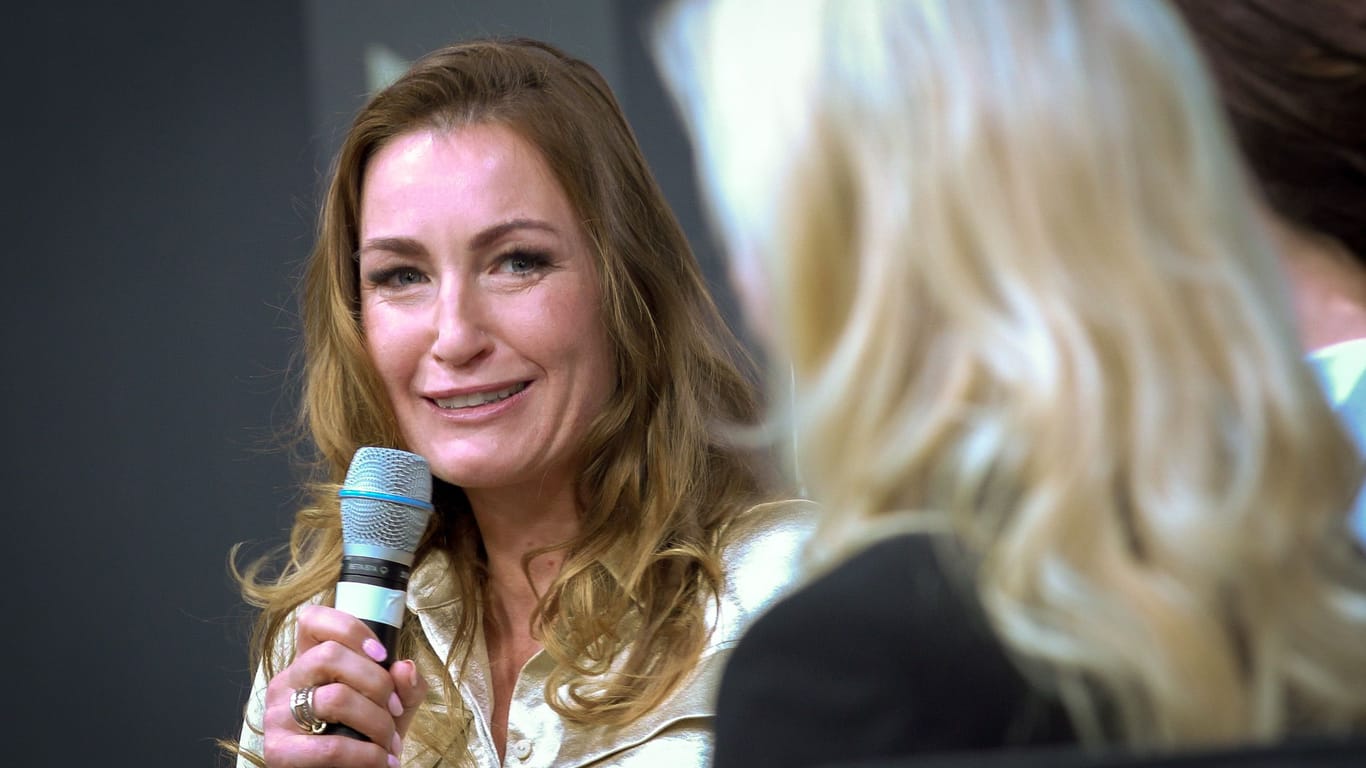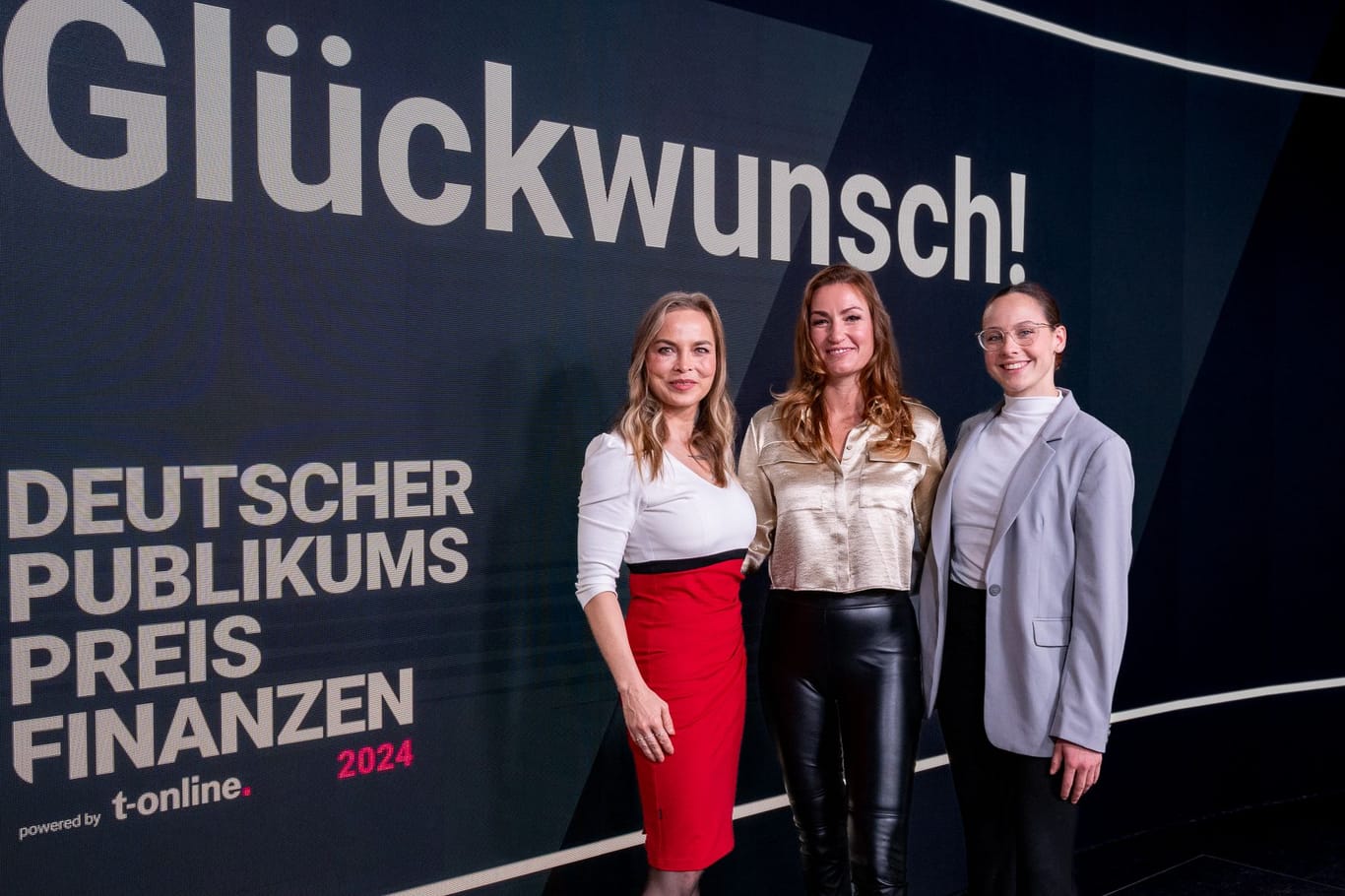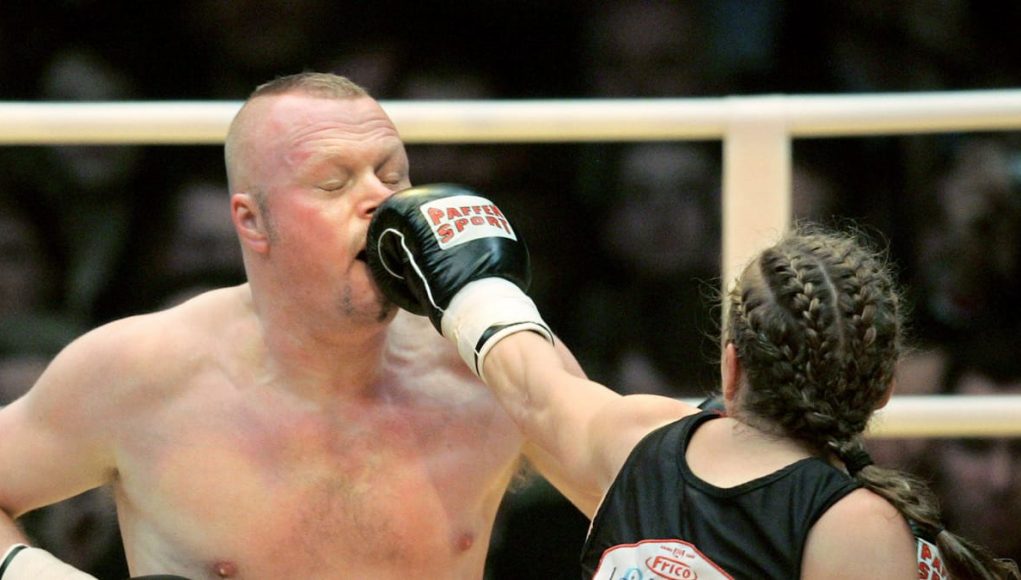Three world-class athletes discuss financial uncertainty in professional sports, what needs to change – and how they invest their money on the podium at t-online's Finance Audience Award.
Four comfortable armchairs with magenta-colored cushions decorate the stage of Frankfurt's “Spark”, an event center in the heart of the financial metropolis on the Main. Three athletes meet here on Thursday evening who are connected by success, who have shown perseverance – and who talk to t-online financial columnist Antje Erhard about money: the boxing world champion Regina Halmich, the artistic gymnast Sarah Voss and the Paralympic cyclist Denise Schindler .
The panel discussion is part of the awards ceremony for the Audience Prize for Finance, in which 61,000 t-online readers cast more than half a million votes and chose the winners in ten categories. These include “local bank”, “direct bank”, “broker” or “building society”. Click here for the 2024 award winners.
Sarah, in order to do gymnastics like you, you shouldn't have to worry about money. How did you manage your finances?
Sarah Voss: Unlike in football, in my sport, gymnastics, you unfortunately can't win big sums of money or really make a living from it. You therefore have to see early on where to invest money in order to be protected for the future. I was lucky that my father was interested in investing. We invested money early on in stock funds and real estate funds.
Denise, in the Olympic year of 2024 the question arose as to what the athletes earn. How do you manage to make a living from your sport?
Denise Schindler: When I was world champion for the first time at the age of 25, I thought: Now I've done it, I'm the fastest in the world. Then the letter came from Deutsche Sporthilfe: My funding was a total of 150 euros per month. You then have to get creative to follow your passion. I started building my own brand in 2011. So we sent out press releases, drew attention to my sport, and found sponsors. And I started giving lectures.

Regina, you said last year that you put money aside early on. What advice do you give young talents on how they can balance sport, pressure and also financial livelihood?
Regina Halmich: It is very important that you deal with it early on. It helps if you have parents who are role models and support you. At the beginning I even had to pay entry fees to get into the ring – so I still had to pay for hitting it. My advice is that it is also worth putting small amounts aside, not getting into debt, and developing financial awareness. Having reserves always means being somewhat independent.
Sarah, you are one of the 24 best gymnasts in the world. How did you get this far, what made you so strong?
Sarah Voss: First and foremost, the strong parental home and the people around it, a team of experts, a team of trainers, a nutrition expert, a sports psychologist. I'm 25 years old and have been doing gymnastics for at least 20 of them. It takes people who support me as a person and athlete, who rebuild me when I have setbacks – and who are networked. But I also became creative and, as a student, wrote a math exam in Japan and an biology exam in Doha. This was the only way I could become the best version of myself.

Regina Halmich (48), boxing world champion between 1995 and 2007, has been present in the media since the end of her active career and is involved in social issues. Denise Schindler (38) won medals at the Paralympic Games in 2016 and 2021 and is an advocate for inclusion in sport. Sarah Voss (25) is an artistic gymnast and made it to the last 24 at the Olympic Games in Paris.
Denise, you were an active cyclist for 14 years, world champion, took part in the Paralympic Games in London, Rio and Tokyo. In Paris you were present at the games as a presenter, a completely different perspective. How was that for you?
Denise Schindler: It was less sweaty and hurt less. As a participant, you have full focus on your competitions, your sport, and have your own agenda. As a presenter, I was able to experience the games in all facets, with all sports. I prepared for all Paralympic sports, for all athletes. And Paris was magical. In the end, no one wanted it to be over. It was great fun.
She wear a prosthetic leg after an accident and write about overcoming challenges in your book “On Good Luck, Being Unlucky”. Where do you see the challenges today, now that your active time is over?































